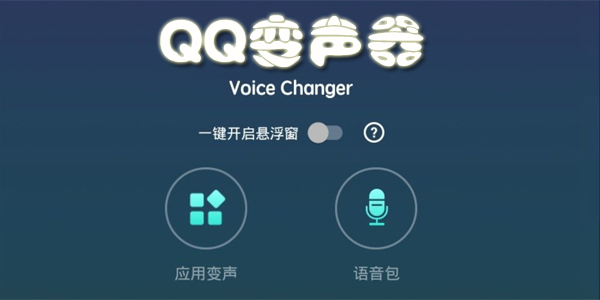IT历史上最重大技术和产品失败教训
全球IT史上8个最重大的IT技术滑铁卢事件
高科技行业一直在发生着太多重大的失败。数百万的美元和无数的技术人员的时间生生被消耗了,浪费在这些糟糕的、设计思路错误而且很难使用的产品上。
创造这些产品的公司往往因此而消失了。
怎样区分简单的坏产品和可怕的重大失误呢?有些时候它是一个可怕的、令人无法接受的用户界面。它也可能是一个成功的迎合的某些特别的应用,但是几乎没有什么人去用。常常是迫于竞争和财务上的压力,充斥着无数错误而且几乎无法使用的新产品过早的被投向市场。还有些情况下,产品本身很成功,但市场还没有可能接受,于是那些投资于它们的公司就在产品于市场上获得成功之前就过早的灭亡了。
硅谷和其它新技术的诞生地都因为一种特殊的组织形式在吞咽着失败的苦果。这就是由具有强大技术实力和创新能力的工程师们领导的团队,他们缺少对市场的敏感,尤其缺乏对消费者需求的考虑。所有这些公司都在想着他们要改变世界,而这种想法令他们生产出许多根本没有人需要的产品。
互联网泡沫产生出大量的这种典型,例如失误的Pets.Com公司。他们怎么会认为有人愿意支付20美元去购买10美元一袋的狗食?类似的还有eToys公司、WebVan?公司、Kosmo公司等等。
但是以上这些失误与业内的最可怕的灾难相比就显得苍白无力多了。以下是我个人列举的一些8个可以称上灾难的消费类技术产品失误的例子,可做为前车之鉴:
IBM的PCjr低端电脑产品(IT滑铁卢之一):这一切是从IBM称之为“花生”的低端电脑产品开始的。当时IBM依靠它的IBM牌商务电脑获得了令人难以置信的成功。而PCjr这时刚刚开始进入市场。大约1984年左右的时候,电脑在大学已随处可见。PCjr电脑有着可怕呆板的仅仅几个键的键盘,系统也缺乏可扩展性,只是依靠组件可以勉强加些功能。我的一个大学室友买了它,刚好1000美元的价格(当时的商务电脑售价5000美元),真可怕。家用电脑的时代终于来临的时候,IBM则再也没有机会重新赢得这块市场。这是在个人电脑消费产品的第一个大失误,很可能位居首位。
Go手写电脑产品(IT滑铁卢之二):在1992年最热门的事情就是Go,当时被认为是继个人电脑和视窗Windows之后的又一项进步。花费了数百万美元开发了一个新的被称为“笔尖”的全新的操作系统,运行依靠手写,而不是键盘。不幸的是这软件有太多的代码错误,计算机硬件配置也缺乏足够的能力把手写的文字转换成字符,而且售价过于昂贵了。与手写电脑类似的灾难也出现在同时代的Momenta公司身上,该公司在1992年花费了4千万美元设计制造了毫无用处的便携式电脑。同样可以成为灾难的由AT&T公司制造并销售的EO产品,一种手写电话,比今天的许多笔记本电脑还要重。值得注意的是微软公司的手写产品也不怎么好,虽然它一直想在该领域有所作为。
魔法帽子PDA产品(IT滑铁卢之三):实在应该早些提到这种自以为聪明、而且累赘的PDA。似乎是为了迎合政府的口味而设计。代理公司们策略的将其引入家庭,想赢得人们的赞许。首先是苹果公司以它的第一款产品落难,然后是AT&T和索尼这样的公司。后者显然有更多的投资资金,终于推出了产品。但是这根本不是什么PDA,只是基于有声邮件系统的假冒的替代品。而且以包含众多错误以至于无法使用而结束了他的历史。
微软的Bob用户界面产品(IT滑铁卢之四):微软称该产品将作为Windowsy用户界面的替代品。但它更大程度上是个错误。Bob被展示了一圈,赢得些滑稽的赞誉,并得到了“可爱的计算机”的美名。它像一系列卡通的房间,用户可以进入实用一些常用程序,例如电子邮件、字处理和游戏等等,当然还有个数字化的向导给你指引。用户们极其讨厌这种风格的用户界面。可能只有比尔。盖兹觉得这个产品好用。
Iomega公司的Clik! Drive驱动器产品(IT滑铁卢之五):1999年,当可刻录光盘CDR开始变得便宜和受欢迎时,Iomega公司发布了它独有的可写入40G数据的Clik! Drive移动盘。同样作为软盘的换代产品,以及数字相机的存储器,它显然太昂贵了以至于肯本无法同CDR或是闪存竞争。单一张空白盘就要花费10美元。更糟糕的是,它有着与Iomega公司受欢迎的Zip驱动器一样的缺点,就是读取时噪声太大。最终,这个产品很快随着Zip驱动器一样的被淘汰了。
数字音乐产品Data Play(IT滑铁卢之六):四年前,这个想成为CD的取代者的产品,被做为未来的数字音乐盘。它有四分之一CD的大小,容量是普通CD的2/3。而且它是可写的,而且很容易换内容。技术上说,确实很棒。但是,对市场来说它又出现的太晚了。同时期,已经有了第一个数字的音乐产品,它们占据着市场。可怕的是,这个产品的近亲可刻录CD价格只有50美分,而Data Play盘的价格却是6美元。闪存和有着极大存储优势的微型硬盘的价格下落也同样将Data Play无情的淹没了。不象其他的失败,但它仍旧发生了。你可以在eBay上花165美元买到它。
互联网终端产品(IT滑铁卢之七):谁需要电脑?为什么不在厨房、儿童室或其它什么地方放一个花费很少的互联网终端?互联网终端的消失,源于以下几个原因。首先电脑产品的价格大幅下降,所以全套的电脑比互联网终端也多花不了几个钱。其次,人们都习惯于尽可能得到更多的功能,即使他们从来不用。比起只能上网的互联网终端,电脑可以玩游戏、记账、编辑电影甚至写小说。即使这些功能也可以在网上得到。在互联网终端上失败的比较著名的包括3Com的 Audrey产品、Netpliance 公司的I-opener 产品以及只短暂存在了2个月的索尼eVilla产品。
微软Web TV产品(IT滑铁卢之八):用电视代替显示器来浏览互联网的页面。1996年时,很受技术人员的欢迎。一年以后微软花了42.5千万买下了这个公司。但是当安装到一百万用户的家中,一些人清醒了并认识到低分辨率的电视显示的电子邮件和网页非常难看。后来微软把Web TV的名字改成MSN TV, 也没什么用。如果你用它上网,很难让你像一个真正的电脑人。
 |  |
| F E A T U R E Top 10 Lists: 10 Worst Mistakes Our Readers Admit They Made | |
 | |
October 2, 2000 More Top 10 Lists10 Most Significant Standards Groups10 Biggest Bloopers and Blunders10 Worst Mistakes Our Readers Admit They Made-->10 Hottest Emerging Products10 Most Misguided Misconceptions Let users install the NetWare 32 Windows client unattended Assumed tape backups actually contained the data they needed Relied on a Microsoft Word document to manage IP address allocation and user account management Ran NetWare vrepair in the hopes of recovering lost data Uninstalled Windows applications by simply deleting files and folders Left the cover screws in the back of a PC Crimped 10BASE-T cable without a schematic Installed a service pack on a production machine Listened to users Missed an issue of Network Computing |
 |  |
| F E A T U R E Top 10 Lists: 10 Biggest Bloopers and Blunders | |
 | |
October 2, 2000 More Top 10 Lists10 Most Significant Standards Groups10 Biggest Bloopers and Blunders-->10 Worst Mistakes Our Readers Admit They Made10 Hottest Emerging Products10 Most Misguided Misconceptions IBM’s poor marketing of OS/2 Apple’s insistence on producing expensive, proprietary systems that missed the mark as enterprise platforms Novell’s purchases of WordPerfect ($850 million), Unix Systems Labs ($300 million), DR-DOS ($130 million) and AppWare ($17.5 million) Novell’s clinging to a character-based interface for WordPerfect and eventually releasing a bug-ridden Windows version of it Microsoft’s claim in federal court that Internet Explorer and Windows 95 are inseparable The public’s making Kevin Mitnick into a hero Intel’s introduction of the Pentium processor with flawed floating-point operations Microsoft’s Bob The Apple Newton FTP Software’s attempt to market an IPsec client and then an IPv6 stack long before either were standardized |
《BYTE》:20 Spectacular Failures
Sometimes you get it; sometimes you don’t. Why should computer companies be any different? There doesn’t seem to be a single one that has the complete Midas touch.
Apple III
Apple Computer
Apple’s first designed-for-business computer was plagued with hardware gremlins after its 1980 debut. Or perhaps gremlins isn’t the right word--ogres might be more accurate. At one point, Apple advised users of malfunctioning units to lift their machine several inches off the desktop and then drop it--to reseat loose chips. The Apple III engineering group was disbanded in 1984.
VisiOn
VisiCorp
This integrated software package had a slick windowing interface and was supposed to be the smash-hit sequel to VisiCalc, the first spreadsheet pro gram. But two years after it appeared in 1982, VisiOn was "visioff."
MSX
Microsoft
You think everything Microsoft touches turns to gold? Think again. MSX, a Z80-based computer standard developed with several Japanese companies in 1983, flopped so badly that only a handful of MSX machines were ever sold in the U.S. Somehow Microsoft survived.
Lisa
Apple Computer
With 1 MB of RAM, 2 MB of ROM, a 5-MB hard drive, and the first GUI ever seen on a personal computer, the Lisa was a breakthrough machine in 1983. It cost $10,000 and crawled like a slug, however. When the Macintosh arrived in 1984 at $2495, the Lisa was doomed. In 1989, the last 2700 Lisas were buried in a Utah landfill.
Aquarius
Mattel
When Mattel demonstrated this computer at a trade show in 1983, employees had to conceal one of the keys with masking tape. For some bizarre reason known only to Matte l engineers, the Aquarius had a convenient key that instantly rebooted the computer and wiped out all your data.
DEC Rainbow
Digital Equipment Corp.
In the early 1980s, several companies tried to sell computers that ran MS-DOS but weren’t IBM PC-compatible. One was the DEC Rainbow, which became famous as the computer that couldn’t format its own floppy disks. You had to buy preformatted blank disks from DEC--at a considerable markup. The Rainbow quickly faded in 1985.
Gavilan Mobile Computer
Gavilan Computer Corp.
This early 8088-based laptop had an eight-line LCD screen, an innovative touchpad, and an optional printer that attached to the back. But it wasn’t PC-compatible and suffered from technical problems. In 1984, a Gavilan executive announced, "The microcomputer industry is entering a new chapter -- Chapter 11."
Adam
Coleco
For the incredibly low pri ce of $599, eager buyers got a Z80-based home computer with a daisy-wheel printer, a 512-KB tape drive, and bundled software--luxurious features in 1984. But the Adam was so poorly designed that it sometimes erased its own tapes during boot-up. It was nicknamed the "Adam bomb."
PCjr
IBM
This cruelly crippled cousin of the IBM PC was supposed to conquer the home market in 1984. Instead, it was overshadowed by Apple’s launch of the Macintosh, and its chiclet keyboard and sky-high price drove away hordes of buyers. The PCjr died a laughingstock in 1985.
Mindset PC
Mindset
Too far ahead of its time, the Mindset tried to bring dazzling color graphics to business users in 1984. Unfortunately, it wasn’t completely PC-compatible, and most business users thought color graphics were for game machines. (Little did they know.) How-ever, the Mindset became the first computer in the New York Museum of Modern Art’s permanent industrial collection.
DG/One
Data General
This 10-pound laptop had a 12-inch LCD screen, a mighty impressive feature in 1984. In theory, anyway: The nonbacklit screen was almost readable if the light was just right and you had the vision of Superman. Most people didn’t.
Osborne II
Osborne Computer
In 1984, Adam Osborne announced that he would introduce a new version of his Osborne I, the first successful portable computer. In anticipation of the Osborne II’s superior features and performance, sales of the Osborne I plummeted. When the Osborne II was delayed, the company’s finances plummeted. Within months, Osborne was in bankruptcy court.
Jazz
Lotus Development
This 1985 integrated software package was supposed to turn the Mac into a whiz-bang business machine. But most reviewers said that Jazz didn’t boogie, and Microsoft Excel outsold it 3 to 1. After Microsoft introduced its own integrated software, Works, Jazz sang the blues.
TopView
IBM
Preceded by a year of hype and ballyhoo, TopView was supposed to bring multitasking to DOS programs on IBM PCs. In 1985, however, the typical PC had an 8088 or a 286 CPU with 256 to 640 KB of RAM. Hardware and compatibility problems soon dropped TopView out of sight.
Windows 1.0
Microsoft
This is the only spectacular failure that eventually made a comeback and became a spectacular success. Announced in 1983 and shipped in 1985, Windows 1.0 was so crude that it was mocked by Mac users and largely ignored by PC users. Not until Microsoft released version 3.0 in 1990 did Windows become a hit.
Access
Microsoft
We’re talking about the 1985 terminal program, not the 1992 relational database. Need we say more?
PC Convertible
IBM
Reviewers we ren’t exactly thrilled with IBM’s first laptop in 1986. IBM retailer president Jay Rosovsky responded, "So what? It’s going to sell well because it says IBM and might legitimize a lap market that’s been wallowing. I don’t think it’s technologically great shakes." He was wrong, and he was right.
dBase IV
Ashton-Tate
Released in 1988 after long delays, dBase IV was so riddled with bugs that many users fled back to dBase III Plus. Two years later, dBase IV 1.1 finally fixed some of the bugs, but the damage was done. Borland bought Ashton-Tate in 1991 and spent three more years porting dBase to Windows.
Momenta Pentop
Momenta
This 386-based portable pen computer could run either Windows or a proprietary GUI environment and was considered intriguing enough to make the cover of BYTE in November 1991. But it weighed 7 pounds, cost $4995, and was hobbled by poor handwriting recognition. After its shining Momenta in the sun, the company expired in 1992.
OSI
International Standards Organization
OSI (Open Systems Interconnection) is a seven-layer reference model for network protocols that was supposed to set a new standard for interoperability. Thanks to strong backing from the federal government, it never had a chance.
Only SuperMan Could Use This One
photo_link (24 Kbytes) 
Dim Prospects For Data General.
Sad Lisa, Lisa. She’s Down in the Dump.
photo_link (17 Kbytes) 
Apple’s Lisa: Beat Out By A Guy Named Mac.
A New Chapter in Computing History
photo_link (26 Kbytes) 
Gavilan Had The Right Idea But Wasn’t PC.
Not Even Fresh Breath from This Bomb
photo_link (29 Kbytes) 
PCjr: Chiclets Are For Gum -- Not For Keyboards.
Famous Vaporware Products
XANADU
Ted Nelson
Nelson first conceived his futuristic vision for hypertext way back in 1960; although his idea inspired countless products, Xanadu is still pending. Autodesk worked on it from 1988 to 1992; Nelson later hooked up with Japan’s Sapporo HyperLab.
OVATION
Ovation Technologies
The term vaporware was first coined to describe this integrated software package for DOS. Announced in 1983, it never shipped. That was 12 years ago.
WINDOWS 1.0
Microsoft
"Microsoft Does Windows!" gushed InfoWorld in 1983. Perhaps, but not for two more years.
MACINTOSH OFFICE
Apple Computer
Steve Jobs’s infamous "reality distortion field" was running in overdrive when he an nounced this networking solution in 1985. It didn’t become real until 1987.
1-2-3/G
Lotus Development
The first graphical version of Lotus 1-2-3 (for OS/2) was announced in April 1987 but wasn’t delivered until September 1990.
WINGZ FOR WINDOWS
Informix
Neat new tote bags at every Comdex. But until 1990, they were empty.
1-2-3 FOR MACINTOSH
Lotus Development
Mac users had been waiting more than four years when 1-2-3 finally shipped in 1991. Unfortunately for Lotus, most of them decided it wasn’t worth the wait.
WINDOWS NT
Microsoft
In 1991, it was known as OS/2 3.0 or OS/2 NT. Then IBM and Microsoft had a little spat. When NT arrived in 1993, it was Windows all the way.
DBASE FOR WINDOWS
Borland International
Impatient dBase users tapped their toes for nearly five years. Many had walked away by the time the Windows version finally shipped in 1994.
WINDOWS 95
Microsoft
Need we say more?
Notorious Bugs
Bugs in computer hardware and software are no more than the crystallization in silicon and plastic of the mental mistakes all people make. People are only human, after all, so computers can only reflect our own humanity.
THE BUG THAT NEVER WAS, THANK HEAVEN
1983:The SDI (Strategic Defense Initiative) proposal was intended to defend the U.S. against a nuclear missile attack by using computer-aimed weapons to shoot down the missiles. It was estimated that the software would have required some 10 million to 100 million lines of code. Without the Soviet Union’s cooperation in staging nuclear missile attacks to test it, the system would have to work perfectly--bug-free--the first time it was ever used. Despite widespread misgivings, a 1986 Department of Defense panel concluded that the concept was still feasible.
CHECK BOX TO PREPAY
1985:An IRS computer error resulted in 27,000 companies receiving warning notices to pay employee federal withholding taxes that they had, in fact, already paid. The House and the Senate planned hearings to investigate.
THE BUG THAT KILLED
1985-1987:At least four people died when they were exposed to lethal doses of radiation from Therac-25 linear accelerator machines (made by Atomic Energy of Canada Ltd.), used for radiation treatment of cancer. Software errors caused the machines to incorrectly calculate the amount of radiation being delivered to the patient. The most tragic incident to date of death or injuries to human beings due to defective computer software, this incident is a reminder that, as we entrust human lives and health to computers, the seriousness of eliminating bugs becomes a life-or-death proposition.
A BUG IN A WORM IN A NET
1988:A math error caused a "worm" program to multiply 14 times faster than intended, and as a result, the Internet was swamped and overwhelmed in a few hours. It was weeks before affected systems recovered from the damage wrought, costing in the hundreds of millions of dollars. Robert T. Morris, Jr., the Cornell University graduate student who wrote and unleashed the worm, later said, "It was a mistake. I’m sorry."
COMPUTER’S DOWN, CHECK YOUR PITONS
1988:Backup data, corrupted due to software errors, eventually destroyed all the main system data--and backup copies of data--at an automated Black & Decker distribution center in Northampton, England. Employees were eventually forced to climb the racks of inventory in the unlit warehouse with mountain-climbing equipment to check stock.
TO WHOM IT MAY CONCERN...
1989:A computer in Paris read files on traffic violations and then mistakenly sent out letters charging 41,000 traffic offenders with crimes including murder, drug trafficking, extortion, and prostitution. Recipients were described as "surprised."
WHY DOESN’T THIS EVER HAPPEN AT OUR BANK?
1989:A British bank that understandably wishes to remain nameless mistakenly transferred an extra 2 billion to customers in only 1 hour, when a bug permitted payment orders to be issued twice. Since there was no way to distinguish real from duplicate transactions, the bank had to depend on the honesty of its customers to recover the extra payments.
DIAL B FOR BUG
1990:A logic error in its call-handling computers shut down AT&T’s long -distance telephone network for 9 hours, the most severe breakdown in the history of the U.S. telephone system. Some 74 million long-distance and 800-number calls were not completed, bringing phone-dependent businesses--like car, hotel, and airline reservations systems, and credit-card approval services--to a standstill.
SIN OF OMISSION
1991:American Patriot missiles were fairly successful. However, the failure of some Patriot missiles to track and destroy Iraqi Scud missiles during the Persian Gulf War may have been due to a software problem of the system. During one such Iraqi missile attack, 28 American soldiers were killed in their barracks in Dhahran, Saudi Arabia.
A BETTER WINDOWS THAN DOS
1991:With the introduction of Microsoft Windows 3.0, "unrecoverable application error" became a household phrase, soon to be replaced by "g eneral protection fault" in version 3.1 (heralded by the headline "Windows Upgrade Crashes Less Often").
DON’T USE THE CALCULATOR! WE NEED THE RIGHT ANSWER!
1991:It was revealed in 1994 that the Calculator applet in Microsoft Windows did not display correct answers. Reportedly, it took the Pentium bug brouhaha to motivate Microsoft to admit and fix a bug it may have known about since 1991.
YOU ARE LOST AND GONE FOREVER...
1993:An $80 million satellite called Clementine was hopelessly lost in space after a software error caused its thruster rockets to fire continually, consuming all its fuel before its asteroid-rendezvous mission was completed.
DOUBLE, DOUBLE, TOIL AND TROUBLE
1993:The DoubleSpace automati hard disk comparision software included in Microsoft MS-DOS 6.0 -- billed as capable of nearly doubling the effective space on hard drives -- corrupted data, was incompatible with certain BIOSes, and crashed programs and networks. Besides which, Microsoft lost a compression patent-infringement suit brought by Stac Electronics, to the tune of over $100 million. (Of course, it later struck a partnership with Stac.) Version 6.2, which cleared up the majority of these problems, was denied to be a "bug fix."
DON’T EVEN LEAVE THE AIRPORT
1994:For months, bugs in a computerized baggage-handling system delayed the opening of the new Denver airport. The system would drive automated baggage carts into walls or deposit bags at the wrong airport destination. After an additional expenditure of some $80 million to fix the system, the airport finally opened in February 1995 -- with a manual baggage-handling system that will be phased out gradually. Sometimes you just can’t beat the human touch.
DIVIDING WE FALL
1994:The Pentium bug, probably the most widely reported-on bug in history, was a glitch in the lookup table used to perform floating-point pision in Intel’s flagship chip. The magnitude of errors ranged from 1 out of 10,000 to 1 out of 1 quadrillion, while estimates of the frequency of errors varied widely from days to millennia. Probably more significant than the defect itself was the fact that Intel’s reputation was tarnished needlessly: Intel knew about the problem, decided to keep it a secret, and then downplayed the defect when it was discovered independently. It is estimated that Intel may have lost upward of $400 million due to the Pentium bug.
OH, I JUST CAN’T WAIT TO BE (WOR)KING
1994:Disney Interactive was the cause of some Christmas-morning traumas when its Lion King animated story CD-ROM, easily the most-anticipated and best-selling title during that season, wouldn’t work. Inadequate testing by third-party developers caused installation failures on many PC systems. This may have been the first bug to affect popular culture.
AND ON WALL STREET, 166 FUNDS REMAIN UNCHANGED
1994:One day, Fidelity Investments, the $250 billion mutual fund corporation, was temporarily unable to calculate the "net asset value" for 166 of its 208 mutual funds because a bug had overwritten every stock in its database with 9s. A low-level employee authorized using the closing prices of the previous day rather than admitting that Fidelity didn’t know what the actual prices were. The subsequent uproar resulted in the establishment of rules for handling such situations in the future.
THE INCREDIBLE GROWING FILE
1994:A bug in CorelDraw 5 caused the size of a file to multiply wildly when certain operations were performed, transforming 2-MB files into 30-MB behemoths. Although fixed in subsequent releases, another file size problem later emerged.
THREE OF LIFE’S CERTAINTIES: DEATH, TAXES -- AND BUGS
1994-1995:Intuit announced that calculation errors or loss of data could occur in both its TurboTax and MacInTax income tax preparation programs. Many people use such programs because they are worried about making errors by doing their taxes manually.
ABSOLUTELY, POSITIVELY DELETED
1995:Millions of Super Bowl telecast watchers were impressed by ads for Federal Express’s new Windows software for handling package pickup and keeping track of FedEx deliveries. Unfortunately for the estimated 15,000 companies that started using the first release, all their records were deleted on the first day of each month.
THE BUG IS YET TO BE
2000:When the global odometer turns over on January 1, 2000 A.D., computer systems the world over are expected to buckle. Legacy mainframe programs hard-coded to treat the year "00" as 1900 will begin calculating negative ages, seniorities, and benefits. Where will your bet be when the millennial roulette wheel comes up "00"?
 轻甜交友
轻甜交友 漂流瓶瓶
漂流瓶瓶 小附近交友app
小附近交友app 猿粪吶
猿粪吶 ehviewer新版白色
ehviewer新版白色 熊猫看书
熊猫看书 掌阅
掌阅









